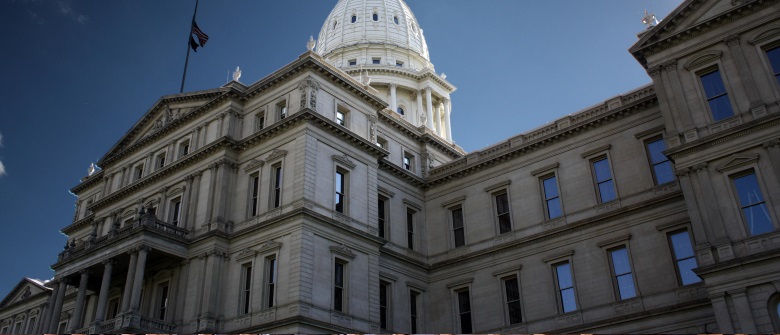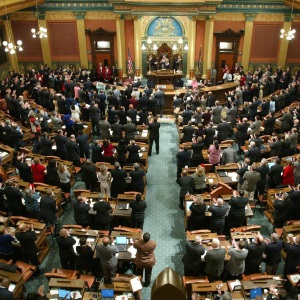Michigan approves of Online Gambling Bill

Michigan sports betting fans are finally going to get their wish come true. This is because in a legislative vote that took place Friday to legalize online gambling. Thus, the latest gaming news is that Michigan approves of Online Gambling Bill.
Furthermore, a $1.3 billion spending bill also came to pass that would assign more for streets and ecological cleanup. However, not everyone was happy with the budget because critics thought the money should be spent on the Michigan school system.
The supplemental spending enactment took place amid the end hours of a 22-hour day of casting a ballot. Thus, according to bookie PPH, the two-year session finally came to an end. It was the last possibility for Republican Gov. Rick Snyder and numerous administrators to put an engraving on state spending before they leave office. The betting measures would make Michigan the fifth state where online bets are lawful.
Michigan Budget Bill Breakdown
 According to the bill, online gambling operators will have an 8 percent tax from wagers (minus winnings and pay outs). Gambling Industry analysts also said is less than a 19 percent tax now paid by Detroit’s three casinos. Those casinos could seek an internet gambling license. Michigan’s 23 tribal casinos could conduct online gambling if they secure authorization from the state through a compact.
According to the bill, online gambling operators will have an 8 percent tax from wagers (minus winnings and pay outs). Gambling Industry analysts also said is less than a 19 percent tax now paid by Detroit’s three casinos. Those casinos could seek an internet gambling license. Michigan’s 23 tribal casinos could conduct online gambling if they secure authorization from the state through a compact.
One contentious budget-related bill would permanently dedicate $69 million a year to Snyder’s proposed “Renew Michigan” plan. The funding in part would replace a bond issue that is drying up. It is a backup plan after the legislature rejection of Snyder’s call to increase the fee for hauling waste.
The measure also would boost road construction spending by more than $100 million. This is part of a multi-bill package that drew bipartisan support. Furthermore, it totals more than $1.2 billion in state and federal spending along with $100 million put into savings.
Thus, the state would hire 175 additional child protective services caseworkers following a scathing audit. In the end, they would spend $30 million to put more mental health professionals in K-12 schools. Furthermore, lawmakers also set aside $115 million in earmarks for select districts.






